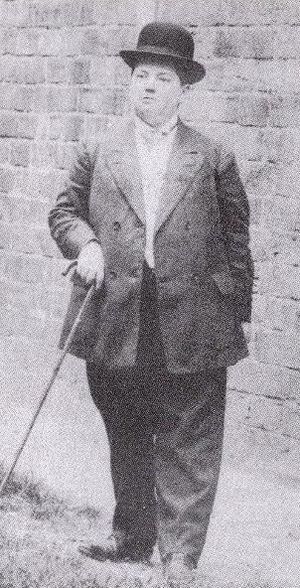Madeleine Pelletier facts for kids
Quick facts for kids
Madeleine Pelletier
|
|
|---|---|

Madeleine Pelletier dressed like a man to distance herself from femininity, a concept that she saw as a sign of the oppression of women
|
|
| Born |
Anne Pelletier
18 May 1874 Paris, France
|
| Died | 29 December 1939 (aged 65) Perray-Vaucluse asylum near Paris, France
|
| Nationality | French |
| Alma mater | University of Paris Faculty of Medicine |
| Known for | Women's rights |
| Scientific career | |
| Fields | Physician, psychiatrist |
Madeleine Pelletier (1874–1939) was a brave French psychiatrist, a leader in women's rights, and a strong activist. She was born in Paris, France. As a teenager, Madeleine was interested in groups that wanted to change society, like those supporting socialism (where everyone shares resources) and anarchism (where people govern themselves).
She became a doctor in her twenties, even though it was very hard for women to get an education then. Madeleine was the first woman in France to earn a special degree in psychiatry, which is the study of mental health. She also joined a group called Freemasonry, and a political party called the French Section of the Workers' International. She even led a group fighting for women's rights. Madeleine traveled to Russia hoping to join the October Revolution, a big change in government, but she came back feeling disappointed. Back in France, she kept fighting for women's rights and for a fairer society. She wrote many articles, essays, and stories. Even after she had a stroke in 1937 that made one side of her body weak, she continued her work. Madeleine passed away in 1939.
Contents
Early Life and Education
Madeleine Pelletier was born Anne Pelletier in Paris on May 18, 1874. From a young age, she was interested in ideas about how society could be better. She spent time with groups that discussed socialist and anarchist ideas. These ideas focused on making society more equal and fair for everyone.
Madeleine faced many challenges to get an education. At the time, it was very difficult for women to study advanced subjects. Despite this, she worked hard and became a doctor. Her dedication led her to become the first woman in France to earn a doctorate in psychiatry. This was a huge achievement and opened doors for other women in medicine.
Fighting for Women's Rights
Madeleine Pelletier was a key figure in the movement for women's rights in France. This movement is often called first-wave feminism. She believed strongly that women should have the same opportunities and rights as men.
Medical Equality
In 1903, Madeleine led a campaign to allow women to study all types of medical specialties. She especially pushed for women to be able to take the exams for psychiatric internships. This was a big step towards making sure women could become doctors in any field they chose. Her efforts helped break down barriers in medicine.
Freemasonry and Activism
Madeleine was also a Freemason, which is a member of a social and charitable organization. She joined a lodge called La Nouvelle Jérusalem in 1904. This group had both men and women members. Even though she was part of this group, she often disagreed with them when it came to her strong efforts to promote women's freedom and equality. She believed in speaking up for what was right, even if it meant challenging her own group.
Political Involvement
Madeleine was very involved in politics. She joined the French Section of the Workers' International, a political party that aimed to improve conditions for workers. She also led a feminist association, working to make women's voices heard and their rights recognized. She wrote many articles and essays, sharing her ideas about how society should change to be more fair for women and all people.
Later Life and Legacy
In 1937, Madeleine Pelletier had a stroke that caused her to be partially paralyzed. Despite this, she continued to write and advocate for her beliefs. She kept fighting for feminist and communist causes, showing her strong spirit and dedication.
Madeleine Pelletier passed away in 1939. Her life was dedicated to fighting for equality and justice. She is remembered as a pioneer who broke barriers for women in medicine and a tireless advocate for women's rights and social change in France. Her work helped pave the way for future generations.
See also
 In Spanish: Madeleine Pelletier para niños
In Spanish: Madeleine Pelletier para niños

